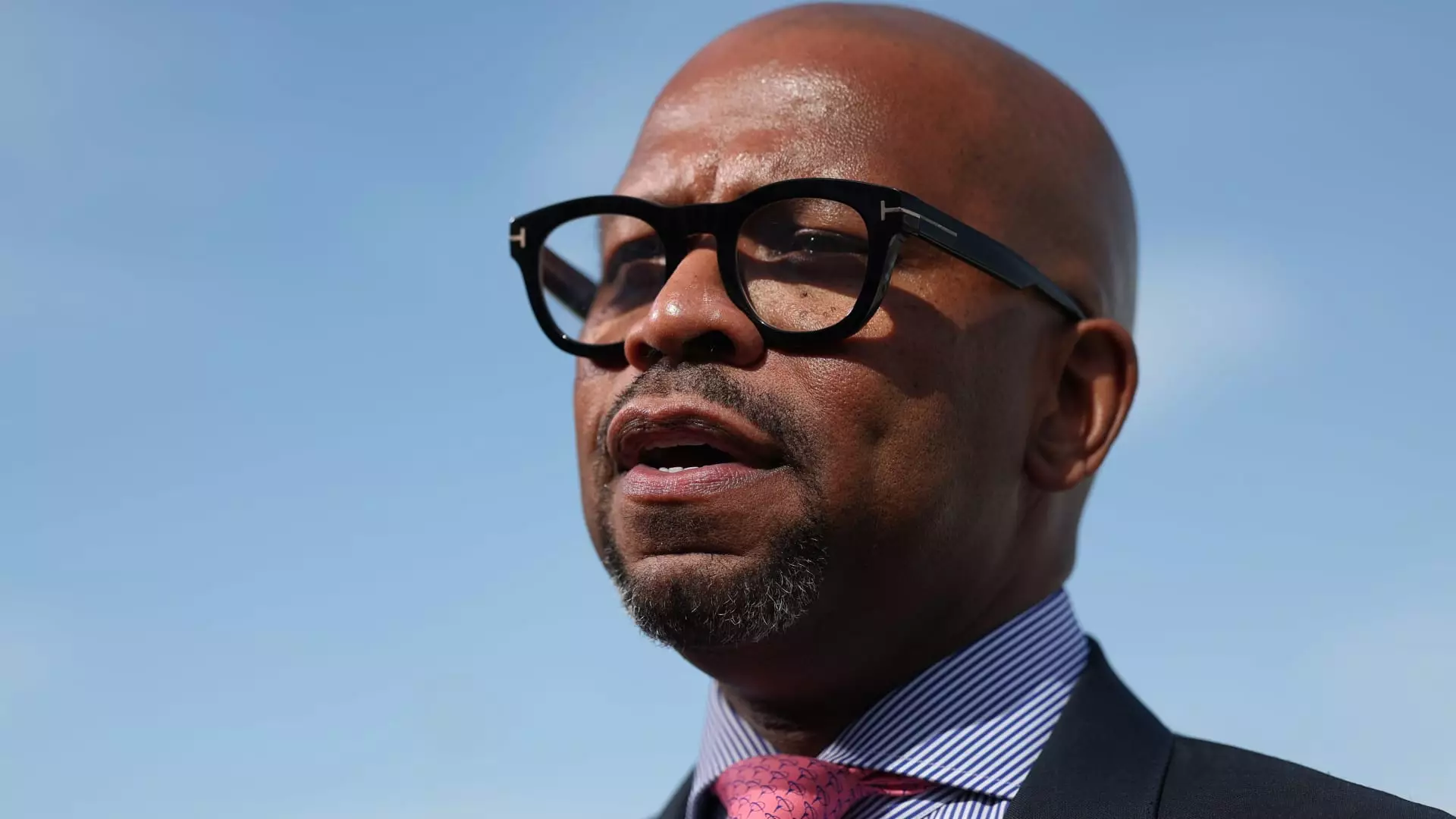In a surprising turn of events, Boeing’s defense division has witnessed the immediate exit of its head, Ted Colbert. This seismic shift is being regarded as a pivotal moment for the aerospace giant under the new leadership of CEO Kelly Ortberg, who assumed the role in August. This transition reflects both a recognition of the challenges facing Boeing and a commitment to revitalize the company’s efforts in securing its vital defense contracts.
Colbert’s departure comes laden with implications, especially given the current climate of scrutiny regarding Boeing’s performance in the defense sector. In a staff memo, Ortberg emphasized the urgent need to regain the trust of their customers and meet the expectations placed upon the corporation. The CEO’s assertion that “working together we can and will improve our performance” articulates a collective insistence on accountability and performance enhancement amid prevailing difficulties.
The stakes are particularly high for Boeing’s defense, space, and security segment, which constituted a staggering 40% of the company’s revenues in the first half of the year. Despite this significant contribution, the division has been beleaguered by production delays and alarming cost overruns. A notable example is the ongoing troubles associated with the new 747 aircraft designed to serve as Air Force One. These issues not only strain operational capacities but may also jeopardize future contracts.
Production problems are afflicting other projects as well, evidenced by the delays in the Boeing Starliner space vehicle. Recently, the Starliner returned to Earth without its intended cargo of NASA astronauts, who were instead brought back by a SpaceX vehicle. Such public failures can significantly tarnish Boeing’s reputation, especially in high-stakes domains like space exploration and national defense.
Steve Parker, the current chief operating officer of the defense unit, has been appointed as the interim head while Boeing searches for Colbert’s successor. This decision aims to create consistency during a tumultuous period. The forthcoming leadership appointment will be crucial, as it will determine not only the direction of Boeing’s defense ventures but also influence broader organizational strategies to address existing concerns.
Colbert’s tenure lasted 15 years, a period that was marked by growth as well as challenges. The incoming leader will need not only to continue the push for technological advancement in the defense sector but also to foster an internal culture that prioritizes quality assurance and operational excellence. Navigating production hurdles and enhancing the reliability of service delivery will be paramount for restoring confidence among stakeholders.
Boeing stands at a crucial juncture that demands decisive leadership and a clear strategy to overcome its current predicaments. The leadership shift reflects a broader recognition of the challenges ahead and the essential need for change. As Parker takes the helm temporarily, all eyes will be on Boeing’s next steps and its commitment to maintaining its position as a trusted partner in national security and aerospace endeavors. The coming months will be instrumental in determining whether Boeing can turn the tide and rebuild the trust that has been tested within its defense sector.

